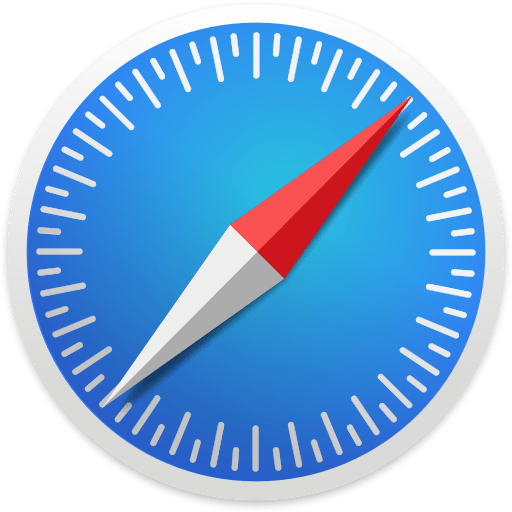Installing v8? See Installation Requirements (v8) for version specific requirements.
The following lays out the Application Server specifications required to install the following v7 Decisions server types:
- Production Server: a live environment where created processes are leveraged by end-users (customers)
- Non-Production Server: non-customer facing environment used for development and testing production readiness
- Repository Server: non-customer facing environment used to deploy projects between servers
Browser Compatibility
Browsers not accounted for in the below chart will support the Portal, but not the Studio.
 Chrome Chrome |  Edge Edge |  Firefox Firefox |  Safari Safari |  Internet Explorer Internet Explorer | |
|---|---|---|---|---|---|
| Studio | .png ) | .png ) |  |  |  |
| Portal | .png ) | .png ) | .png ) | .png ) |  |
Hardware Specifications
- Data-heavy environments
- Organizations with long procurement/change request cycles
| Server Type | Processing | Memory | Storage |
|---|---|---|---|
| Production Server | 3.0 GHz 4-Core CPU | 16 GB RAM | 100 GB |
| Non-Production Server | 4-Core CPU | 8 GB RAM | 100 GB |
| Repository | 4-Core CPU | 8 GB RAM | 100 GB |
Azure Specifications
For more information on using Decisions with Azure, please visit Installing on Azure.
| Server Type | Processing | Memory | Storage |
|---|---|---|---|
| Production Server | D-Series D4s v3 | 3.0 GHz 4-Core vCPU | 16 GB RAM | 150 GB |
| D-Series D8s v3 | 8-Core vCPU | 32 GB RAM | 150 GB | |
| Non-Production Server | D-Series D4s v3 | 4-Core vCPU | 16 GB RAM | 150 GB |
| Repository | D-Series D4s v3 | 4-Core vCPU | 16 GB RAM | 100 GB |
Amazon Web Services (AWS) Specifications
For more information on using Decisions with AWS, please visit Installing on AWS.
These specifications are provided for optimal performance in the average server environment. Because this is a web-hosted environment, it cannot use the same reduced system requirements as a local install.
| Server Type | Processing | Memory | Storage |
|---|---|---|---|
| Production Server | M4 Instance - m4.xlarge | 4-Core CPU | 16 GB RAM | 100 GB |
| Non-Production Server | M4 Instance - m4.xlarge | 4-Core CPU | 16 GB RAM | 50 GB |
| Repository | M4 Instance - m4.xlarge | 4-Core CPU | 16 GB RAM | 50 GB |
Software Requirements
| Operating System | .NET Core | Hosting Type |
|---|---|---|
| Windows Server 2016 - 2019 or newer, 64-bit | .NET Core 6.x for v7.10+ | Self-Hosting Considerations |
| .NET Core 5.x for v7.2-v7.9 | IIS Hosting Considerations | |
| .NET Core 3.1.x for v7.0-v7.1 | ||
| *.NET Core 2.1 SDK |
* = The .NET Core 2.1 SDK is only required for Internal and External Webservice References. It is not required to run Decisions.
Supported Database Servers
| Database Server Type | Required Version | Additional Information |
|---|---|---|
| MSSQL | SQL Server 2012 SPI Standard or newer | All versions and patches of SQL Server 2019 are compatible. This includes both Standard, Enterprise, and Express editions. Standard installation with default collation (SQL_Latin1_General_CP1_CI_AS). Instances may be named; the Instance Name does not need to remain its default value. |
| Azure | All supported | DB level of at least S3 or P1 is recommended to prevent timeouts for Decisions SQL queries including those during installation. |
| AWS | - | DB level T3 is recommended |
| PostgreSQL | PostgreSQL 12 or 13 | Available in v7.6 and higher |
It is recommended that Microsoft’s standard SQL maintenance plan is utilized for database maintenance.
Network Ports and Protocols
Depending on the chosen database server, Decisions uses the following default SQL port numbers to connect to the database server.
| Database Server Type | SQL Port |
|---|---|
| MSSQL | 1433 |
| Postgres | 5432 |
To modify the SQL port number, update the connection string syntax (myPortNumber) as follows:
Server=myServerName,myPortNumber;Database=myDataBase;User Id=myUsername;Password=myPassword;
When installing locally, Decisions attempts to occupy the following default ports for users to host its service.
These port numbers may be configured during and after installation.
| Port | Usage |
|---|---|
| 80 | Assigned for HTTP connections |
| 443 | Assigned for HTTPS connections |
It is recommended to run Decisions via HTTPS for added security. Refer to the Securing an Installation article for additional security methods.